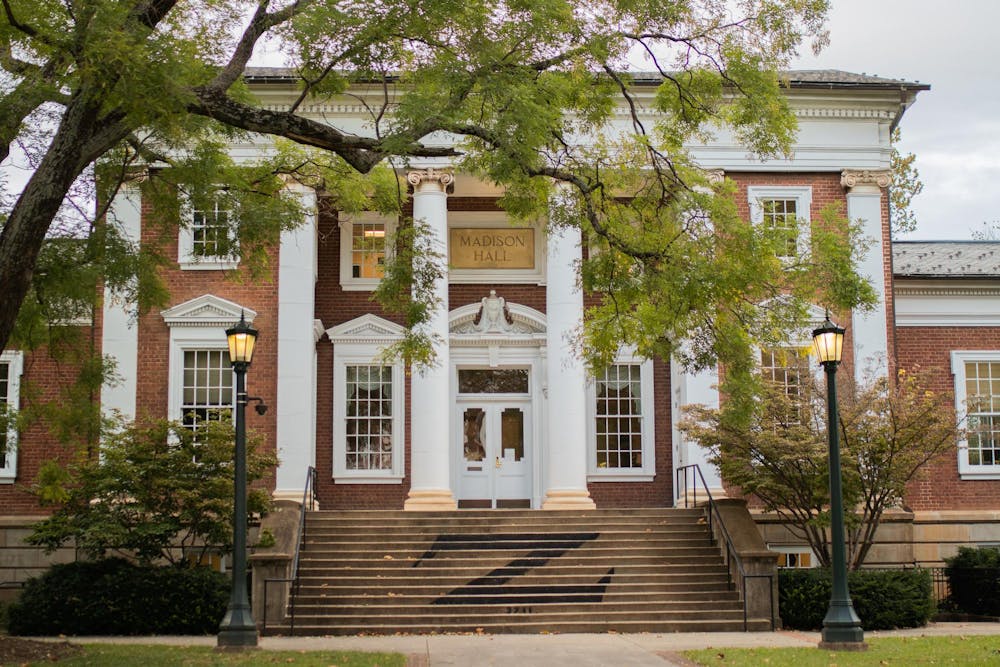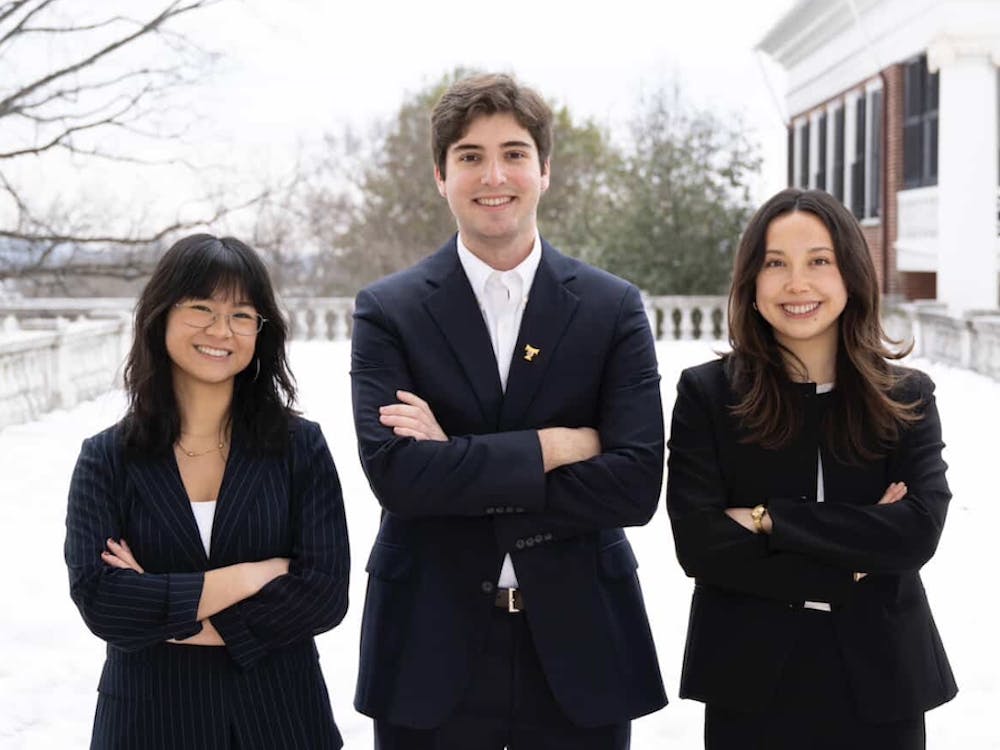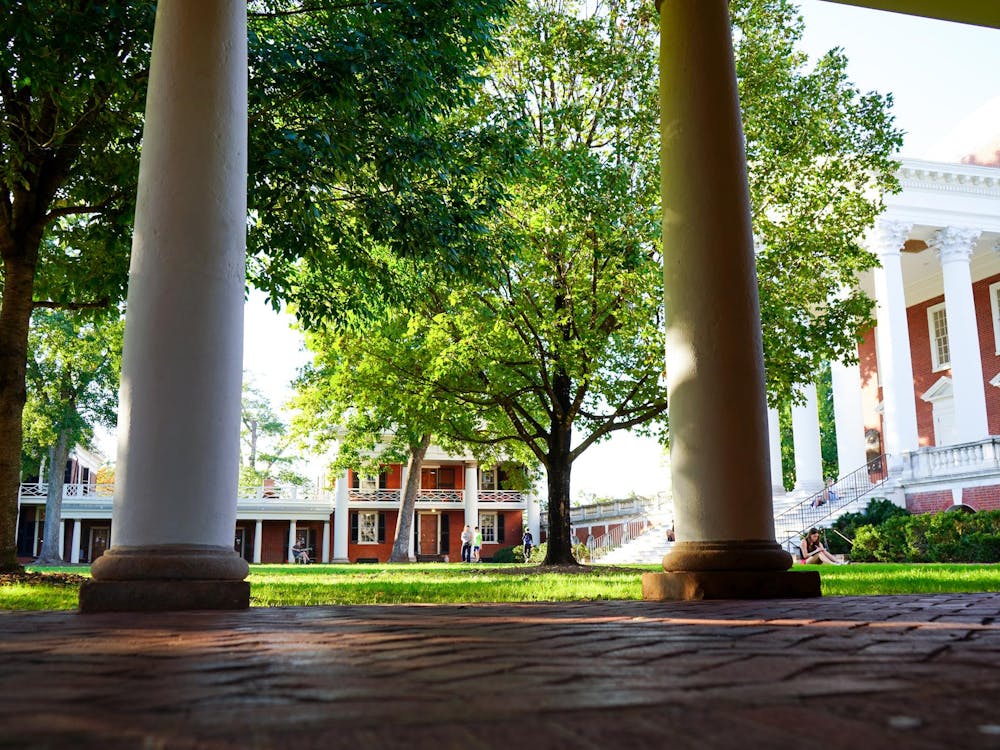Last week, this Editorial Board was prepared to applaud Interim University President Paul Mahoney’s decision to reject the Trump administration’s Compact for Academic Excellence in Higher Education. The Compact’s ambiguous standards and requirement of continuous federal investigation would have proven destabilizing to the University. After many community members stated these objections, the University rightly refused to sign it. Unfortunately, the new agreement between the Trump administration and the University perplexingly includes these exact destabilizing requirements — unclear benchmarks and continued investigations.
Announced just five days after the rejection of the Compact, the new agreement pauses — but does not terminate — all current civil rights investigations initiated by the Justice Department into the University until 2028, provided the University remains in compliance with the Justice Department’s controversial interpretation of existing civil rights legislation. In this agreement, the government is able to unilaterally determine whether or not the University is acting according to the terms of the agreement. In fact, the agreement only provides the University 15 days to correct apparent violations as determined by the Trump administration. This includes time to dispute whether a violation has occurred at all. Such a brief window is not sufficient to completely change internal operations, regardless of the sincerity of the US’s concerns.
Of course, the current federal administration is not known for its sincerity. After all, the Justice Department initially forced the University to the table by pressuring the resignation of former University President Jim Ryan and destabilizing this administration for the near future. Reflecting this explicit power imbalance, the agreement lacks institutional safeguards if the federal government wields legal terms as a political weapon. Unlike agreements at Brown University and Columbia University that provide relatively robust processes for resolving disputes around compliance, the agreement between the University and the federal government offers no real barriers to capricious government action.
It features neither a Brown-like clause requiring good faith negotiations between the parties before termination, nor an independent dispute arbitrator similar to Columbia’s agreement. While both schools’ agreements feature numerous other undesirable provisions, they are superior to the University’s when considering mediation strategies. By the terms of our agreement, the Trump administration is free to capriciously terminate the agreement and commence investigations, while the University remains powerless to protect itself.
Brown and Columbia’s agreements, while deeply flawed in other ways, show that transparent safeguards are possible to include in agreements with the United States. Therefore, it is baffling that the University would not pursue similar measures in its own agreement. It is true that, unlike Brown and Columbia, the University will not have to pay an upfront price for its agreement nor be explicitly required to keep extensive records of compliance. Yet, when considering the future consequences vulnerability to the federal government will have on the University, perhaps it should have considered these terms. However, the lack of fines or fees is vastly overshadowed by the specter of the federal government’s future subversion of the University’s autonomy.
At a meeting of the Faculty Senate Friday, Brie Gertler, interim executive vice president and provost, acknowledged that the civil rights guidance the University must follow is not an established legal standard, raising the immediate question as to why the University would choose to follow such guidance in the first place. Indeed, Gertler acknowledged that the interpretation the University is required to follow is the Justice Department’s own and “open to question.” This ambiguity is damning — if the University is beholden to a standard propagated by the federal government alone, the United States need not look anywhere else but its own highly changeable doctrine to declare the University in violation of the agreement.
The guidance issued by the Justice Department on July 29 is just that — guidance. The document itself describes its contents as “suggestions” and “non-binding,” ostensibly designed to help federal funding recipients avoid provoking the legal might of the federal government. The danger of applying guidance that has not been fully litigated cannot be overstated, for the University could find itself having to change its policies and procedures anytime a court finds the federal government erring in its interpretation of the law. Gertler acknowledged as much on Friday, admitting that the University has declined to enforce part of the guidance on the definition of gender due to recent court rulings. In short, the agreement risks creating a confusing patchwork of internal University policy — a patchwork the Trump administration can point to when exercising its investigatory power over the University.
Ultimately, not one week after publicly committing to the ideals of higher education by rejecting the Compact, Mahoney reversed course and signed an agreement betraying those same values. Indeed, he has set a precedent for future coercive deals between the federal government and state institutions of higher education.
Although the immediate effects of this act are unknown, the imperiousness of the power now granted to the Justice Department unfortunately traps the University until at least 2028. It is disappointing to see that, rather than acknowledging the feedback given by members of the community, Mahoney chose to sign an agreement that opens the University to the type of perpetual investigation precisely embodied by the Compact. While we were hopeful that the University administration would truly listen to the needs and concerns of all its stakeholders, this agreement makes clear that the University has let us down once again.
The Cavalier Daily Editorial Board is composed of the Executive Editor, the Editor-in-Chief, the two Opinion Editors, two Senior Associates and an Opinion Columnist. The board can be reached at eb@cavalierdaily.com.







